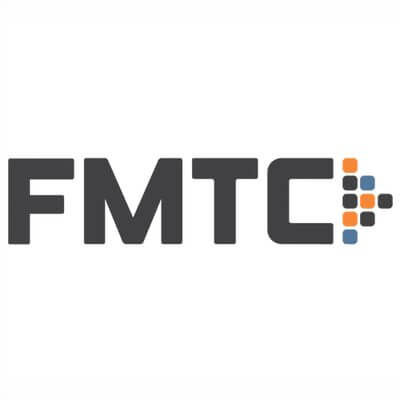Do you have remote communication protocols for your remote workers?
Yes, but they are different. We have regular meetings where we expect people to do their synchronous work.
We also promote “core hours” 7-10 a.m. PST Monday through Friday where everyone should be available if needed for meetings, regardless of the time zone you happen to be living in.
I think everyone is conscious of staying focused on our goals so we don’t overload each other with too much need for collaboration and decrease our ability to be available to each other quickly.
We also expect meetings to be efficient and start and end on time. People are welcome to leave if they need to.
When working, our remote workers must always be in chat and respond as soon as they are able to (not interrupt their engaged call). We try to limit email communications and instead use an internal intranet for any communication to staff. Anything from announcements, new clients, procedure changes, recognition, etc. is visible to them in one central location. They are expected to keep up with information necessary for their position and can view this before their shift or during while they are not on a call.
No, we don’t have any directives for this as we operate on a largely asynchronous basis – people are used to working with or needing input from people in different time zones and buffer this into their work accordingly.
We do not have explicit communication norms set for our team. In terms of responding to communications, it depends on a number of factors and we trust our team to make the judgement call regarding when they have time to answer and what is appropriate to the situation.
There are two key things we overemphasis related to communication that are part of our core operating principles:
- Set Expectations: Work is often fuzzy, especially when you’re on a remote team. We constantly work with our team to set and update expectations responsibly, transparently, and honestly. In reality, this might include sending a short email summary with next steps and owners after a meeting or being honest with a client about a potential project delay, immediately, regardless of who is at fault.
- Ask questions: We encourage our team to build a mental model by asking questions—quickly, loudly, and shamelessly. We’ve learned that the best Bitovians have no shame when it comes to asking questions. We coach our team to build a gap-free mental model of every problem or proposed solution, to never spin their wheels when stuck, and to lean on each other for efficient answers. In the words of Brian, our CTO, “Our collective team efficiency is much more important than any one person not being distracted.”
Communication in a virtual environment is absolutely key to building trust. And so for this reason we expect our team to respond to emails, and messages within 2 hours max during business hours. This also gives us peace of mind because our team is so spread out that if we don’t hear from someone for a whole day we do get worried!
As with an office based role, remote workers are required to be available during the working day. Generally most managers will establish the norms, as appropriate to the role and timezones.
There are various tools used to support instant and general communication, email, Internet Relay Chat (IRC), and video calls. If a remote worker is in a meeting or away from their desk we encourage them to update their IRC to reflect this (AFK).
We do have set parameters that we ask people to follow. The more numbers you put around what people should be doing the better. Clear expectations are a critical success factor.
There is no hard and fast rule, but as a general rule of thumb, the quicker the better. Because we are a startup company, things move very quickly. But everyone understands that things like different time zones, time off, and people being done for the day when you’re just starting yours are all inevitable. Everyone is very flexible.
We have a Monday weekly meeting for about 45min where everyone should show up. Other than that team members are free to take time off or work flexible hours as long as there are no blockers for other team members working on a project.
Our policy for sharing all decisions and statuses on Asana allows us to conduct client calls or send report emails at any time, since all work and future plans are available to all team members and we can react even if they’re off for a few days.
We ask people to install HipChat on their mobile phones so that we can mention them for a quick question if needed, but this is not a hard requirement, nor is related to a specific availability time frame.
We treat Slack like our “office” – when you’re working, you’re logged in, and when you’re not, you’re not. We don’t have time-based response rules, but if you don’t log in to Slack, it’s the equivalent of not showing up for work. Ultimately, this makes it easy to maintain consistent work/life balance for everyone – if somebody isn’t on Slack, you know they can’t be expected to respond to (or even see) anything you send their way.
We have clear, written guidance for our team members with regard to how quickly and thoroughly they need to respond to prospective business clients and job seekers. We also utilize an internet-based recruiting software tool that is accessible to all team members. Most of our actions and activities are captured there, so we can see where team members are in the job placement process and support them as needed.
It depends on the team. I don’t know of any teams in our company that mandate response times for internal communication, but plenty of teams have set up regular schedules for video calls, stand-ups, and patterns of communication to help make sure the whole team stays on the same page over time.
There are some areas like Support and Operations where we deliberately hire so that we can have round-the-clock coverage, but we believe strongly that it should be up to the individuals on each of those teams to coordinate the most reasonable schedule for everyone involved. There’s nothing worse than a decision being handed down from somewhere else in the company that fails to account for the needs of the individuals affected. You have to be flexible, and I think that’s the key. Do what makes sense for the team and the people on the team.
We are starting to implement this a little more as we grow. We have a lot of de-facto standards just from having done this for so long, but as we add more team members we’ve realized the need to standardize some into policy. For example, we’ve standardized around core work hours of 9:30am-4:30pm. Before it was just “get your work done”, but we’ve noticed that we need to ensure more collaboration opportunities, so we want people to overlap their working hours as much as possible. We all work a few hours before or after the core hours as well. Additionally, “coming into the office” means both logging in to Sqwiggle and Attentiv.com, our core communication platforms. If you aren’t in those, we just assume you aren’t “in the office” yet. Definitely beats a traditional commute!
We are generally very flexible with working hours and sensitive to everyone working in different time zones. People need to collaborate on which working hours are best for the teams they work with the most. It is impossible to police strict communication policies, so there has to be a high degree of trust. That said, we work in a very fast-paced, client-driven industry, and employees have no choice but to be timely in communication and deadlines. New employees can quickly “feel” the pace of email and calls and have to keep up.
We don’t set communication rules for the team, but we rely on a collaborative approach to accomplish the company’s goals. Rarely is one team member working alone on a project, so communication is a must. They rely on each other so heavily to do their jobs that there really isn’t a need to specify the terms of communication.
We use a project management system, Podio, exclusively for all communication. By eliminating email and keeping all conversations within Podio, we have made communication between team members and projects seamless. There is a ‘live-chat’ function in Podio that the team uses constantly for quick questions and conversations so they are free to talk there about their different projects. This has worked extremely well for our team.
We don’t place strict rules, but there’s a common understanding that everyone is usually on from the hours of 9 am to at least 6 pm. Slack messages are usually responded to instantly, and emails at least by the end of the day. Every department is different but for the most part meetings are kept at a minimum and contain specific agendas.
We don’t have protocols per se but everyone seems to get it. The tools are just getting better and better.
We do not have specific communication norms. We focus on results and work, not the management of people. If a project is immediate and requires a prompt response from an employee, that is the expectation. The freedom that careers at ICUC offer introduces a desire to always have such freedom and as such, people are made aware of just how important their results are to preserving their positions here. It is a win-win for employees and the organization.
We do have some weekly meetings set up, if someone is leaving his work, then he has to tell it in a channel, preferable with a time frame when he/she is back. Everyone is saying “Good Morning” or “Done for today – ready for a beer!” Or if he is leaving for a short time: “Lunch” “AFK 10 Minutes” “shortly AFK” or “gone for 2 hours – have some errands.”
Not officially, but it’s polite and helpful for us all when we respond quickly – usually 24hrs or less.
We have an overlap policy where we expect everyone to be generally available for conversations and video chats. Remote does not by definition mean time independence. We still feel synchronous communication is important, and want to remove friction by simply having real-time conversations with each other.
The norms generally depend on the role, but we do have some. Editors are expected to respond to submitted work within 2 business days. Customer service issues are addressed within a business day.
In addition, we strive for responses to emails / calls from our team members within 2 business days when they are working – a shorter time frame wouldn’t make sense because people are on flexible schedules in different time zones.
We also have regular phone meetings with employees; these help keep us up on issues
We let each other know when we are going to be hard to reach by email or phone and may pass on key responsibilities. When we are at a conference and expect to be monitoring email minimally some folks request urgent email use a subject line that draws attention such as PANTS ON FIRE!
We set communication norms by job function. Some team members, like customer service, are connected to the chat system throughout normal business hours. Others, like designers, may check in a few times a day, including our main team call. Communication also fluctuates with current events. During our busy season, there may be much more communication required of everyone. The same is true during major product launches. As a general rule, the team members who stick with the company for the long term are very good communicators and very responsive. If a remote worker is a poor communicator or a slow responder, and this is not remedied after some discussion, then those people tend to leave the business.
Everyone needs to attend the daily and weekly meetings related to their work. They should be reachable on Mattermost during working hours—these are set on a calendar and everyone in the team knows their colleagues’ working times. Of course, you take breaks like on any other job. You simply update a dedicated chat channel to tell your team that you are taking a lunch break now, going to the dentist, etc. Mattermost and the calendar exist not so the company can monitor everyone’s whereabouts, but so others know when someone is available if that person needs to be reached.
We do have guidelines, and they apply for everyone, including leadership. For example, if something isn’t urgent, we strongly encourage emails in place of chat—especially outside of someone’s working hours. Another example is that if anyone on the team is going to be unavailable for more than two hours during a workday, they need to notify their manager and their team.
All of our teams have their own channels within Flowdock (similar to Slack) and weekly scheduled meetings to get everyone on the same page. Remote team members take part in these meetings via Google Hangouts. We don’t necessarily believe in imposing strict rules on reply times or mandatory communication. A big part of our company culture is respecting team members as adults with their own time management and priorities. Our team members, both in-office and remote, get their work done in a timely manner and know what is best for their own productivity, so we’ve never felt it necessary to impose this kind of rule. If anything, the expectation of constant and expedient availability might interrupt the workflow. That being said, there is an expectation that team members are looped in on projects and available at some point within a work-day, as a tenet of remote work is the communication we get from platforms and emails.
We try to sync all of our team members about once a month with a Town Hall meeting where we overview what each team has accomplished, what they’re working on, and how we can help one another.
We expect our team to be available and responsive during business hours, but we don’t have any strict guidelines around response times. If a team member’s communicate style or level of responsiveness is incompatible with a project, client, or team he is on, then we provide targeted feedback and coaching around that particular point and the issue always melts away.
We operate more like a regular office, where we are all here during EST/CST business hours. We are trusting of our team where if they need to take time in the middle of the day, they can just make it up later.
We have general guidelines for communication and signaling within our distributed team, but we anchor a lot of communication around daily and weekly synchronous rhythms, such as scrums, reports, and standard emails. We find it’s best to not micromanage work styles or even tools, but to provide a framework. However, we do have a strong dependence on work hours being managed in a single time zone, and we currently do not work with anyone full-time that’s more than 3 hours away from Central Time.
We expect people to be online during their scheduled workday. If they’re not going to be around or stepping out for whatever reason we ask to be notified.
Partially. There is a company scrum at 10am every morning during which people are expected to come, but it’s not a big deal if they cannot make it from time to time.
No, we don’t have any rules or communication norms. Certain teams like to do regular calls while others do not. Personally, I dislike scheduled meetings or calls. We mostly hang out on Slack and ping each other when we need help. Team members respond at their convenience.
Yes. Here’s a direct quote from the handout we use: “Sometimes a quick response is needed to a question. When this is required, please either call the person or send them an email with “IMPORTANT” written in caps in the subject heading. During normal work hours it is safe to assume you will get a response within 1-2 hours for important matters. If outside of work hours, make individual arrangements.”
There are very tight guidelines for communication around classes, and we expect immediate communication if there’s any reason a teacher needs to cancel a class—we like to keep the teacher no-show rate as close to 0% as possible. Kids really look forward to their classes with VIPKID teachers so we don’t want to disappoint them.
We don’t set specific norms for the sake of creating true flexibility. Once you start putting in rules like this, or even once you start creating spontaneous meetings, you remove that true sense of flexibility from the equation. We don’t require our team to have Slack on their phones either if they so desire.
That said, if someone starts falling off with their communication and it’s noticeable, it becomes a concern and is well noted. Trust is only built when you show your team that you’re helping to move things forward every day. Once that starts to go silent, the trust falls apart and the team might leave you behind.












































![/Simple [A]](https://remote.co/wp-content/uploads/2018/02/Logo_Eggplant.png?w=100)











